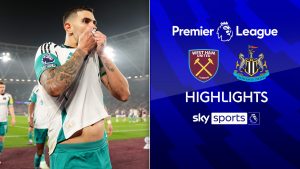UNCG women’s assistant gets show-cause penalty for gambling


GREENSBORO, N.C. (AP) — The NCAA has given a 15-year show-cause penalty to a former UNC Greensboro assistant women’s basketball coach for gambling on pro and college sports — including games involving the school’s men’s basketball team.
Neither the school nor the NCAA identified the assistant Thursday in announcing the sanctions. The News & Record of Greensboro reported that the coach was Phil Collins, who was fired in May 2018.
UNC Greensboro says the men’s basketball program was not involved.
The NCAA and school agree that UNC Greensboro failed to monitor and ensure compliance because seven staff members did not initially report the unidentified former coach’s actions, and that the coach violated ethical conduct rules for failing to cooperate.
The school also was placed on three years of probation and fined $15,000.
An investigation that began in May 2018 found that the coach placed “an extensive number” of online wagers from August 2017 to that May, betting on at least four single games and roughly 10 multi-game parlays — all involving the men’s team.
When he was interviewed as part of the school’s internal investigation in July 2018, he admitted to losing between $20,000 and $30,000 while gambling and told staff of the assistant fundraising director’s wagering. But the NCAA says that throughout the investigation, the assistant declined to provide the enforcement staff with his online sports betting history and credit card statements.
The NCAA also gave a four-year show-cause penalty to a former assistant director of the school’s fundraising organization for making online wagers, including on the Spartans‘ men’s team. The News & Record reported that administrator was Brian Sturgeon, who was fired in June 2018.
According to the NCAA’s statement, he wagered “small amounts” online with at least one bet on the school’s men’s team.
The case was processed through negotiated resolution instead of a formal hearing because the school, one of the staff members and the NCAA’s enforcement staff agreed on the violations and penalties. The NCAA says negotiated resolutions may not be appealed and do not set case precedent.





